For a long time after that he thought about his brother. Sometimes he heard him in his room, but when he looked, the room was empty. Sometimes he saw him on the street, but it always turned out to be another boy.
His Daddy said that he’d get over it, and after a while he told him that he had to. Missing someone was one thing, but pining for something you couldn’t have was a sorry waste of time. Gone for Grotesques was a fact of life. Gone was one in ten. Better that he get his mind on something productive and useful.
His Momma put up pennies. Pared down, scrimped and saved. Preparing for the day of Payne’s coming-of-age, in case that he, against all odds, be similarly gifted. To bribe whoever needed to be bribed. Or failing that, to send the boy away. Anything to keep him from being taken from her. Her one remaining child. Her baby.
*****
The day that Payne turned fourteen was hot and windy. It was summer, and in summer the air in Gode was never still. It blew across the desert plain from sunup to sundown and often through the night, sometimes gently, sometimes fiercely, stirring up the earth, raising whirlwinds of dust, shifting sand. It was a moody wind, and on this day it couldn’t seem to make its mind up, alternating ferocious gusts that seemed intent on wiping out the ancient city with periods of tranquility and calm. The night before, Payne hadn’t slept, anxious and excited for the day to come. Now that it was here, he was as restless as the wind, and he was scared.
He liked his life the way it was, loved his parents, felt loved and secure in return. He liked his room, which, cramped and tiny as it was, was his. The cracks and patches in the walls were familiar and comforting to him. The dirt floor he hated sweeping was cool underfoot, and it helped him sleep in the hot nights, for his bed was pitched on top of it. And his treasures—the stick that his father had carved and painted to help calm his fear of snakes, the skull-shaped rock that Wyn had bequeathed to him, the book of birthday portraits his mother added to every year—how could he leave these behind? And his other treasures, the odds and ends a boy his age collected and spun stories about, the toys whose lives depended on him as much as he did them . . . they’d be lost without his guiding hand and presence. Parting with them would be like parting with himself. He could not do it.
He felt fortunate, then, that he wouldn’t have to. The chances were so very slim. One in ten, or nine in ten in his favor. And two children in a single family, two in a row, two of two, was practically unheard-of. And that was only going by the numbers. More importantly, his os melior showed no signs of life. For the past six months his parents had asked him about it nearly every day, and every day his answer was the same. This lifelessness was possibly the result of the herbal decoction his father brewed for him and diligently made him drink each week. Or maybe the heated pebbles his mother gently piled atop the opening. These were measures to disable the os, for while his parents hoped for the best, they did not rely on hope. And as for chance, they were not gamblers.
As his birthday approached and their anxiety naturally grew, he had taken to telling them first thing each morning. No, he’d say before they even asked, it’s fine, there’s nothing happening. It’s nonfunctional, like yours. It’s not like Wyn’s was. He made a point not to mention the faint, fluttery sensation and tiny wave of warmth he felt on rare occasions near the opening. It was so brief and evanescent that it didn’t seem worth calling attention to. It would only make them more anxious. He knew how much they suffered from his brother’s loss, and he wouldn’t have caused them further grief for anything.
From time to time, however, he wondered what it would be like to have an os like Wyn’s. A fully functional, healing os. He thought of all the people he would help. And the physical sensation of being alive that way. And to follow in his brother’s footsteps, that would be a dream come true. He’d make his brother—or his brother’s memory, since that’s all that was left—proud.
His mother hadn’t slept the night before, either. She’d tossed and turned and lain awake for what seemed an eternity before finally rising at the coming of the day. Immediately, she started in on housework. She swept the floor of the common room and dampened it with water. She wiped the chairs and dining table of dust. She built a fire and put a pot up to make the sweetened tea that she would offer the examiners. She unwrapped the cakes that she had baked the previous evening and arranged them on a tray. These chores helped calm her nerves, like little prayers. For a few precious minutes they allowed her the illusion of control.
When she was done, she turned her attention to herself, bathing, then changing her clothes. Normally, she wore her long hair braided, but for these visitors, who would prefer not to have to look at the bubble of bone at the top of her head, she put it up.
Now she looked positively human. She added earrings. Absentmindedly, she fingered her neck, touching naked skin where her heirloom necklace, her most treasured possession, had been. She had sold it and felt bereaved, not for having had to part with such a treasure but for being powerless to protect her son. Bribery hardly ever worked with the examiners, although sometimes it did. Especially if a child’s gift was minimal. If it weren’t, if like her Wyn’s it was strong and promising, then it was useless trying to intervene. The examiners were on the lookout for such children, who were feathers in their cap. Reputations and careers could be made on finding them.
She had given up the thought of sending Payne away. No one dared to take him, and even had there been someone, where would they have gone? Rampart was out of the question. The only other road from Gode petered out in the desert. There had once been a city farther south, but it had long ago fell to ruin. Except for those poor children who had the misfortune of passing the examination and being torn from their families, people born in Gode remained.
After dressing and finishing with her hair, she fetched the money she had put away. Most of it was in the form of coins, which were tightly stuffed into a leather pouch that she’d kept hidden in the toe of an old boot. To her the pouch felt heavy, although she worried that to a hand accustomed to receiving bribes, it would feel light. On the chance that it did not suffice she considered other measures she might take, measures that other mothers had taken. In preparing for this day, she had talked to countless women and heard countless stories and pieces of advice. Some were shocking. Others literally defied imagination. And while she had been unable to substantiate the rumors of success of any of these interventions, she kept an open mind. She had lost one son already, and if it came to it, she would take whatever means were necessary to prevent the same from happening to the other.
She slipped the pouch into the bodice of her dress, then went to wake up Payne, pausing at the curtain that separated his room from the common room to peek past its edge and gaze on him unobserved. He was lying on his bed, awake, staring at the ceiling. She knew that he was nervous about this day and also knew that he would try to hide it. He was a quiet boy, reserved and thoughtful, unlike his brother, who had been impetuous, outspoken, and sometimes brash. She missed her firstborn more than she had words for, but she drew strength from knowing that he had the tools to look out for himself in whatever way he could. Her younger son, by contrast, was a dreamer. If there came a time that he had to defend himself, she feared he wouldn’t know where or how to begin.
The sound of the front door opening startled her, but it was her husband, not the other ones, not yet. He’d been gone since nightfall, in search of a plant that grew only in a certain distant wash and bloomed by night but was best harvested at dawn. She hadn’t known how worried she was if he would make it back in time until, on seeing him, she felt a wave of relief. He quickly closed the door to keep the sand and dust from blowing in, removed his robe, then crossed the room and embraced her. Over his shoulder he carried a woven bag, and in it was a scraggly bush of the plant he’d sought. One drooping white-petaled flower poked out of the bag’s mouth, but the rest of it was tucked inside and wrapped in a cloth. She kept her distance from the bag, and he was careful not to let its contents prick her.
She asked if he was hungry. He was, but food would wait. He took a moment to look at her. Very nice, he said. Very human.
In reply, she kissed the pleated ridge that swept across the side of his skull, silently praising him for being who he was. Not once had he mentioned the necklace so conspicuously absent from her neck. Nor had she seen fit to call attention to the wedding ring missing recently from his finger. Some things were better left unsaid, and these required no explanation.
Together, they drew aside the curtain to their son’s room. He was sitting up in bed, half-dressed, waiting for them. His father knelt beside him on the floor, removed the bundle from his bag and carefully unwrapped the cloth. The long gray stalks of the desert plant were studded with thorns; its leaves were small and inconspicuous. Silently, Payne watched his father take a knife from his belt and slice and chop the stalks into smaller pieces. His mother also watched, but after a while she gathered her dress, knelt down and took her son’s hands, commanding his attention.
They might not have another chance to talk before the examination, she explained, and she wanted to let him know how much she loved him and how proud she was of him. And to thank him for understanding why, despite the fact his os posed no danger, they felt it necessary to take such precautions. It wasn’t easy being saddled with such worriers for parents. She said this with a smile and a look of deep affection, and ended by telling him how confident she was that everything would turn out fine. The examination was a mere formality. It would be over quickly, and then life would return to normal.
Midway through the morning the examiners arrived. They knocked then entered swiftly, relieved, it seemed, to be out of the now raging wind. There were three of them—two men, one woman—all humans. One of the men was a doctor. He wore the mantle of the office, had oily hair, a fleshy mouth, and a portly build. The other was an enforcer. He carried a variety of shiny weapons and implements of restraint and kept his face expressionless. The woman was elderly, maybe even ancient. She was short and bent, and her face was hidden by a cowl. She dragged her feet across the floor in a shuffle.
Once inside, the doctor made perfunctory introductions. He was Valid, Doctor of the Mental Latitudes, and would be in charge. The woman was Unerrant Sorly, Class and Figure Five. The enforcer was Lieutenant Crisp.
Dr. Valid explained their purpose in coming and what they hoped to achieve. The speech, which he gave by rote, was a mandate of the law. Once he had dispensed with it and settled the Unerrant and then himself into a chair, he asked to see the boy.
Payne’s mother gave a cordial nod. The boy would join them shortly. But she had to apologize, for he was sick. Always sick. Her son was a sickly boy.
Meanwhile, would they like some tea and cake? It was a thirsty day, and selecting children to be taken from their families for the honor of serving humans was a hungry business.
“It is an honor,” answered Dr. Valid. “Make no mistake. And your offer is a kind one. But if we stopped to eat each time that food was offered us, we’d not get far. Fat, though. We would get fat.”
He stole a glance at the tray of cakes perched atop the dining table, and this was followed by a sigh and then a reconsideration. While it was an indulgence to eat, he noted, it was a discourtesy to be ungrateful. In the interest of good manners, then, he’d have a nibble.
She served each of them, first cake and then the sweetened tea. The Unerrant’s hand trembled like a leaf, and her cup and saucer rattled as she lifted them. Dr. Valid ate with relish. He cleared his plate of every crumb, complimented the cook, had a second helping, then fastidiously wiped his lips and repeated his request to see the boy.
Payne’s mother promised to produce him. First, though, might she have a word in private with them? With all due respect, for it was certainly not her place to judge, they were the authorities, she a mere mother, but her son was a clumsy, slow, dull-witted child. And prone to illness and bouts of deep depression. He was difficult to manage. A trying, taxing boy to be around. To be quite blunt, and here she dropped her voice in strictest confidence, he’d be a waste of their time and effort. She truly wished that it were otherwise, but he wouldn’t last a week away from home.
Some examiners were amateurs, some frankly doltish, but Dr. Valid was neither of these. While he much preferred to speak, listening was a part of his job, and he did what was required of him, hearing her out. When she was done, he replied that at least in one respect he agreed with her. It was not her place to judge.
“You are his mother. Mothers are made to love their children, not judge them. That’s why we are here. So if you please, leave that task to us.”
She started to reply, but he halted her. “Madam, I’ve heard every manner of excuse you could imagine. Every entreaty, every flight of fancy, every plea. So please, spare yourself the trouble. Spare all of us.” He paused, holding up a finger to keep her from interrupting.
“I understand how difficult it is to stand by and not interfere. To hold your peace when all you want to do is speak out. What parent would not want to stand up for their beloved child?” He paused again, this time, it seemed, more for the effect.
“I’ll answer that myself: none that I would care to know. Which is why we suggest you leave the room during the examination. It makes it so much easier and less burdensome. For all concerned.”
She had no intention of leaving and told him so, taking care to thank him for his thoughtfulness.
He studied her, as if deciding whether to force the issue. After a moment he shrugged.
“Suit yourself. Now please, the boy.”
Instead, she reached into her dress and drew out the purse of coins. It was warm from contact with her skin. She offered it to Dr. Valid, who made no move to take it.
“You don’t believe me,” he said wearily. “They never do.”
It was Crisp, eventually, who took it from her. He loosened its strings, peered inside, then passed it on to Valid for his inspection.
“Quite light,” the doctor observed, juggling it in his palm. “But I’m sure you don’t mean to measure your son’s worth in money. Nor do we.” He returned the purse to Crisp, who pocketed it. “No more delays now, or I’ll get cross. If you please, the boy.”
“Take me instead,” she said.
“Excuse me?”
“I’ll be a subject for your experiments.”
He raised an eyebrow. “Mine?”
“The ones they do in Rampart.”
He considered for a moment. “Come here. Let me look at you.”
Steeling herself, she went to him, and he perused her. He had her lift her arms, turn, bend at the waist, straighten. At his command she took down her hair, exposing the raised hump of her skull. He eyed this without comment, then questioned her.
“Do you know how unlikely it is your son will pass the test? How minimal the chances are he has the gift?”
“He doesn’t,” she told him bluntly.
“Then you have nothing to worry about.”
“You took my first.”
“Even less likely then.”
This wasn’t true, but even if it were, any likelihood at all was too much of one. “Did I pass your test? That’s all I need to know. Can I assume we have a deal?”
“It makes no sense. Why leave him without his mother? Why abandon him when you yourself say there’s no need?”
“Do you have children, Doctor?”
That, he said, was immaterial.
She thought not. “I don’t want him subjected to this procedure. This test. I don’t want him humiliated in any way.”
He frowned, then shook his head, looking disappointed. “You people baffle me. Do you have any idea of a healer’s worth? How much good they do? How essential they are? In Gode the gift means nothing and never will, but in the world outside it’s one of the most precious things there is.”
“And the Drain?”
“Enough,” said Valid. “Bring the boy to me.”
She eyed him and then the Enforcer, who in turn was eying her, ready, she was sure, to intervene at a moment’s notice. She could beg them but sensed that that would only make things worse. Other, more extreme measures crossed her mind, but wisely, she rejected them. She hated these people but had no choice. She would have to trust the odds, along with what she and her husband had done to influence them.
She called her son. Almost instantly he appeared, followed by his father, who towered over him. To his mother’s eye Payne seemed not quite there. His father bent down and whispered something in his ear, then straightened up and with a hand planted on his shoulder, guided him across the room.
Valid watched impassively, observing the boy. When he halted an arm’s length away, he bid him come nearer. But before Payne could obey, his father stepped in front of him. Reaching in a pocket, he announced he had a business proposition.
Instantly, Lieutenant Crisp was on him. He grabbed his hand and twisted it behind his back. Then he patted him down for a weapon. What he found instead was a pouch of precious and semiprecious stones.
Valid was impressed. “Such largesse. And they say Grotesques do not know how to treat their guests. Stand back, Lieutenant. Give the man room to breathe.”
Crisp did as he was told, allowing Payne’s father to empty out the pouch. The stones, for which he’d pawned his wedding ring and everything else remotely of value to him, filled the broad cup of his hand. He offered them to Valid in exchange for the life of his son.
Valid scowled. “His life? I don’t traffic in life. Human, tesque or otherwise. You offend me.”
“His freedom then.”
“Now that’s different. Freedom, sadly, can be bought and sold. Bribery, however, is unlawful.” He made a motion with his hand. “Put away your jewels. Buy something for your wife. And take heart. As I explained to her, the odds are with you. Decidedly.”
So saying, he returned his attention to Payne. “Now, young man. You see how much your parents love you. I’m sure you’re worth every ounce. Come closer so that I may judge for myself.”
Payne did as he was told, maintaining his composure as best he could. The thorns that his father had collected and methodically pricked him with that morning helped. In addition to further muting whatever incipient healing power he might possess, they had a distancing effect on his mind. Everything that was happening to him seemed faraway, as if it were happening to someone else.
Valid looked into his face, noting that his pupils, despite the room’s dimness, were constricted, then felt his pulse and scowled. To Payne’s father he said, “Why do this thing? Did you think I wouldn’t notice? Do I look like a novice to you?”
From a pocket he produced a small dark vial, stoppered with a bulb-topped dropper. Unscrewing it, he sucked up a dropper full of the vial’s amber liquid, which he squirted beneath Payne’s tongue.
A minute later, the drug began to take effect, counteracting the one his father had administered. Payne felt his heart speed up. The room brightened, as his pupils ballooned. The sense that he was elsewhere, in a muffled and protected world, disappeared. The skin of his back began to tingle where his father had pricked him with the thorns. He felt warm, then cold, and broke into a sweat.
Valid seemed to take his reaction for fear, which was a common, if not universal, response to the examination, and he had ready words of reassurance. They were not there to hurt him or anyone. If he’d heard that, then what he’d heard was wrong. The test was quick and it was painless. Many, in fact, found it pleasurable.
Payne glanced at his father, whose face was stony and controlled, then back at Valid. He was frightened, but truth be told, a little curious about this test. He didn’t want to pass, of course, but he also didn’t want to fail.
“Anything else?” Valid asked impatiently, addressing Payne’s parents. “No? Then with your permission we’ll proceed.”
Rising from his chair, he extended a hand to Unerrant Sorly and helped her to her feet. She was very old, and once she pushed back her cowl to reveal her face, it was clear that she was also very ill. Her eyes were dull and sunken. Her skin was gray and her lips were cracked. Her tired hair lay like pale threads across the mottled cap of her scalp.
Using Valid’s arm for support, she slowly shuffled forward, until she stood in front of Payne. She touched his face, felt the sheen of sweat across his protuberant forehead, peered into his eyes.
“Don’t be afraid,” she whispered, her voice as dry as leaves, her breath sour. “It’s just a test. A little probe. Nothing deep or harmful. We would never hurt a child.”
She smiled a toothless smile, which did little to allay Payne’s apprehension. He’d been told by his parents what to expect, but nothing had quite prepared him for this woman.
She was an Unerrant, and she looked to be dying because, in fact, she was. Perennially dying, poised forever on the brink. All her systems were in a state of failure, which made her the perfect tool for the examiners, the supreme diagnostician. She was a magnet for healing energy, drawn to it like north to south, like full to empty, like yes to no. It was said that Unerrants recognized immediately when someone had the power to heal, overt or covert or incipient, for they were attracted to its merest whisper, awake to its most subtle, hidden nuance, often long before the one who was gifted knew.
Hunched at the waist, she stood arm to arm beside Payne and laced her fingers into his, pressing their palms together with surprising tenacity and strength. Valid then wrapped a broad cloth around their forearms. Payne felt a little tingle in his skin but nothing more. His os melior, notably, felt as lifeless and inert as stone.
He threw a glance at his father, then his mother. Their faces were drawn and tense, and to their palpable relief he shook his head.
Valid saw the exchange and shrugged. He was a philosophic man. The world needed healers, but he did not relish tearing children from their families. It was grim work, and he looked forward to the day when their research bore fruit, for then there would be a far greater supply of what was now a rare and precious commodity. There would be no need to steal an apple when the trees were everywhere, and every tree was ripe with fruit.
He unwrapped the cloth, folded it and put it away. He helped himself to one last piece of cake, then made his way to the door.
Where he paused. Unerrant Sorly had not followed him. Unerrant Sorly, in fact, had not let go of Payne.
Her eyes were gleaming. Her face had taken on a blissful, rapturous look.
Valid chided himself for being hasty. Normally, she was quicker to let him know. Then again, normally she did not get quite so swept away as, clearly, she was now.
He had trouble unpeeling her fingers. She swatted at him with her free hand, which was also unusual behavior, and in sympathy he gave her a few minutes more. At length, though, it was time to end the liaison, and he was forced to separate her from the boy. He handed her to Crisp, who, against her wishes, escorted her to the door.
Payne was confused and frightened. He had felt something he had never felt before. From a distance he heard the doctor tell him to pack his things and hug his parents and say good-bye. His father’s face was ashen. His mother had crumpled into tears. He was going on a journey, the doctor said, a lifelong journey, full of deeds of healing and service.





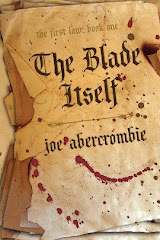.jpg)




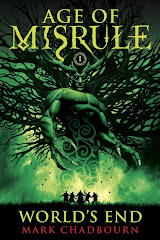.jpg)










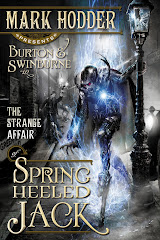


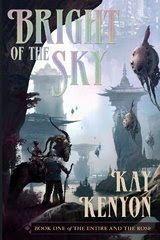.jpeg)
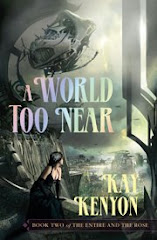.jpg)











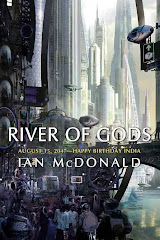.jpg)














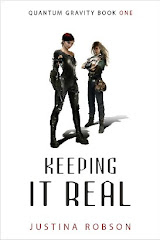.jpg)



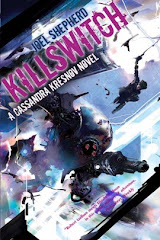.jpg)




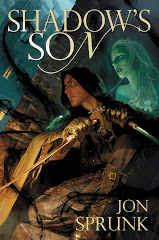

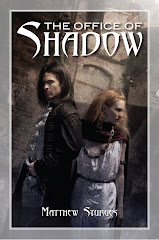







100 comments:
Post a Comment